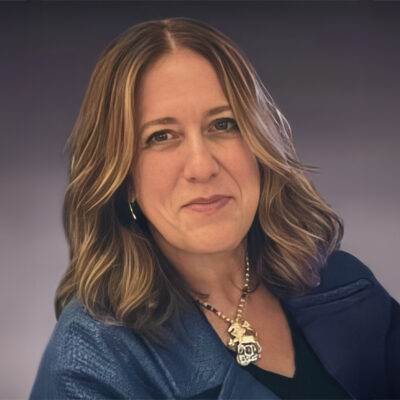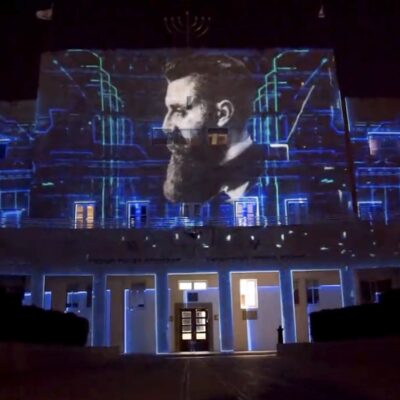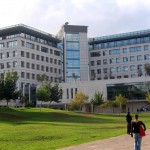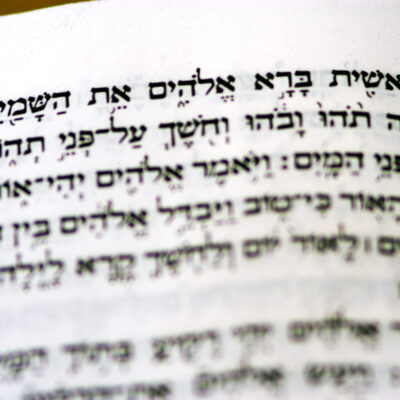ENTRANCE INTERVIEW
Incoming CEO of MetroWest federation Meredith Dragon: ‘If we’re not at the table for interfaith dialogue… we’re on the menu’
Dragon, who entered her role this week, says she will focus on spreading the word on the federation's activities
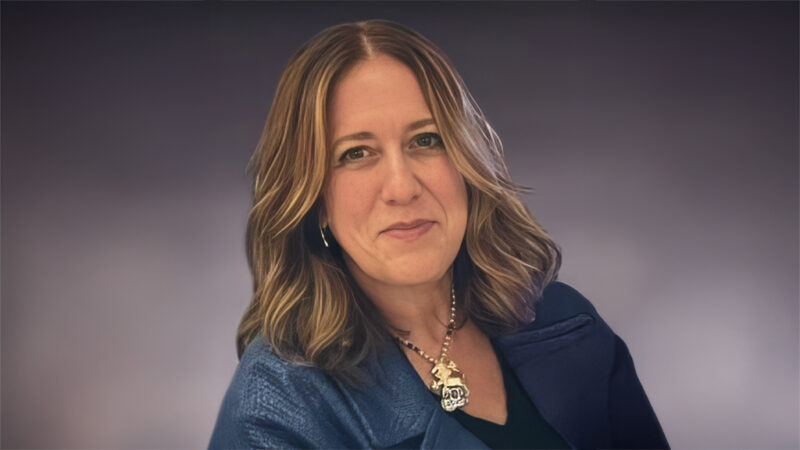
Courtesy
Meredith Dragon, CEO and executive vice president of the Jewish Federation of Greater MetroWest, N.J.
For over 25 years, Meredith Dragon has served executive roles in local Jewish federations, first as executive director of the Jewish Federation of Western Massachusetts and then as CEO of the Jewish Federation of Greater Rochester. On Tuesday, she stepped in as CEO and executive vice president of the Jewish Federation of Greater MetroWest (N.J.), succeeding Dov Ben-Shimon, who filled the role for a decade.
During her time serving in Rochester, she set fundraising records, including raising over $5 million for the ROCStrong Safety & Security Campaign. She established the Levine Center to End Hate and supported the community through the pandemic, Oct. 7 and skyrocketing antisemitism, even as it was directed at her in the form of a bigoted cartoon sent to local Rochester leaders portraying her as a pro-Israel dominatrix.
Dragon sat down with eJewishPhilanthropy this week to discuss the lessons she’s learned during her decades working for federations that she will bring to her new role at MetroWest, which is the largest Jewish philanthropy in New Jersey and eighth largest Jewish federation in America.
This interview has been edited for length and clarity.
Jay Deitcher: What did you learn from your old positions that you hope to bring to New Jersey?
Meredith Dragon: The thing that I’ve done best is galvanizing teams around shared purpose and goals. What I’m looking to do is work closely with our teams, and when I say teams, I mean our lay leadership, our volunteers, our staff, and figur[ing] out together what are the most pressing needs for the MetroWest community and then work[ing] in partnership to implement whatever changes need to be made.
I’m walking into a wonderful situation in that there is nearly a completed strategic plan, and from that strategic plan, there’ll be a series of initiatives that come out of it. One of the things that certainly will come out fairly early on is a look at marketing and branding and rebranding and sharpening the messaging coming from the MetroWest federation.
JD: Have you seen the strategic plan?
MD: I have seen the strategic plan. I haven’t quite digested the strategic plan yet. Our board has not seen the strategic plan, so I’m not ready to comment on it yet because it hasn’t been approved yet by our leadership.
JD: What does it mean to sharpen the messaging coming from the MetroWest federation?
MD: When you look at the amount of money that is raised and distributed in the MetroWest area across the globe and in Israel, there is a significant amount of impact, and we have to do a much better job telling that story.
One of the things that I have always loved about the federation system is that in a community where there’s a federation, if you’re even marginally connected in some way with the Jewish community, you’re touched by the work of federation because of the scope and the breadth of the work that we do. But oftentimes people don’t know that.
One of the challenges in the federation system is sometimes people feel like they don’t know where the money goes. Being transparent about where those dollars go to be able to showcase how they impact you in positive ways, it’s really important that we do that, and I’m not sure that we do that enough.
JD: Can you speak about the federation’s work in Israel, and what about it excites you?
MD: Fortunately, we have staff in Israel. I’ll be going at the end of October, beginning of November, to meet the staff in person. What I’m really excited about is visiting all of the partnerships that we have in Israel. There are five partnerships that the federation runs, and one of them, which I’m very curious about, is with the Druze community in Hurfeish. It’s unique that this federation has a relationship with the Druze community. Obviously, the Druze community has been very impacted by the war and what’s going on in Syria. So it’s a real source of pride that we have this relationship with the Druze community.
And also Ofakim and Merchavim, which are communities in the south, were obviously deeply impacted by Oct. 7. I’ll be able to spend some time there. I’ve traveled to Israel several times since Oct. 7 and going to the Gaza Envelope area is a deeply moving experience. Getting to know a community that has been impacted by Oct. 7 will be a challenging experience, but a good one. We’ve raised $36 million for the Israel emergency campaign, and that has helped across the Gaza envelope, and in particular in our partnership region.
JD: Federation employees are reporting feeling under a lot of pressure in general at this moment, and there is also increased tension within the Jewish communal world surrounding Israel and antisemitism. How do you plan on supporting staff during this time?
MD: It’s been a challenging couple of years, for sure. It’s also been a couple of years where we’ve done some of our best work together despite the stress.
The best thing that I can do for our staff is to let people know that I really have an open door and that they should feel comfortable coming to talk to me. I always say that family comes first, supporting people who have family that they need to take care of. Making sure that we have alignment on our work and our mission. Some of that comes out of marketing, but some of that comes out of team building. I am planning on bringing some team-building opportunities so that we have cohesion among our staff, so that people understand what their responsibilities are, so that there is a clear set of values that we have.
JD: Last year, Monroe County, N.Y., officials received what they called an antisemitic letter and cartoon depicting you in a sexist and stereotypical manner. What did that teach you in that moment and into the future?
MD: In a post-Oct. 7 world, we’ve seen an incredible rise in antisemitism, and obviously being the subject of that was hurtful. One of the things I learned is that when that happens, you will learn who was willing to stand by your side and speak out against it, and who was not. I learned more about who will not than who will and that was very difficult.
It actually spurred me on and fueled my desire to say, one, this is not the kind of community that we want to have, where this kind of hate is tolerated and antisemitism is tolerated, and two, that I will not let a cowardly cartoonist derail me and what I believe in and what I stand for.
The best part was, [the cartoonist drew me in] a great pair of boots. A friend of mine actually made me those boots, and I have worn them proudly. So being able to take something ugly and turn it around and make it empowering.
For the federation, for our leadership, it did galvanize us to say, ‘This is real, and this is really happening here.’ The news spread like wildfire from Rochester across Israel. By the next day, I was already getting text messages from friends in Israel who couldn’t believe the cartoon. It was important for people to see because while some will say that growing antisemitism isn’t a problem, clearly it is. That cartoon was reflective of things that you would see in Nazi Germany, and it was a good reminder that we need to be proud and strong.
JD: An experience like that could cause someone to silo off more or it could impact your relations with other people in the opposite way. Has that impacted what you’re going to bring to interfaith work or your work with other communities?
MD: I think interfaith work is very important, and we have to keep working at it. If people are not going to be our partners and our allies, even when they have been in the past, it means that we need to find new partners and new allies. We don’t have the luxury to stop trying, and there are great allies out there. It’s dangerous when the Jewish community isolates itself. If we’re not at the table for interfaith dialogue and for standing with other communities, then we’re on the menu.


